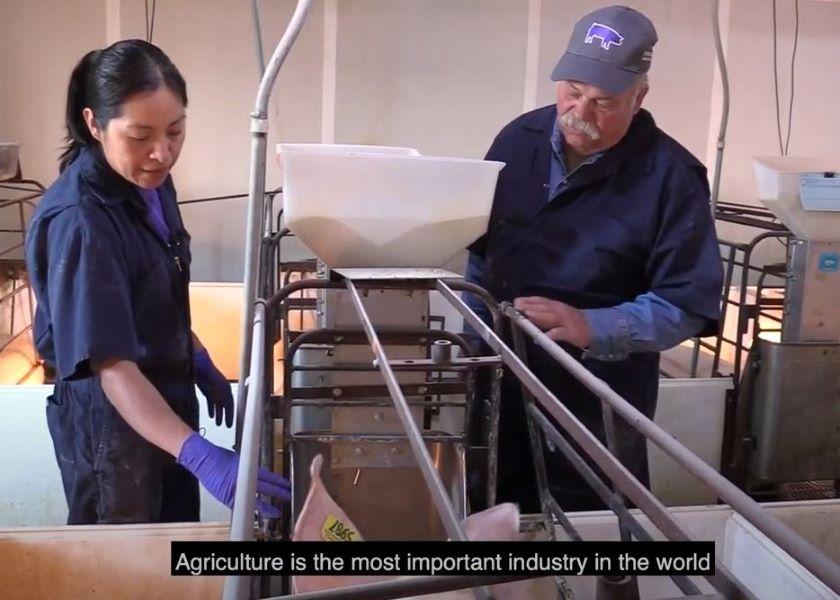Pork Industry Pleas for More Access to Foreign-Born Workers

Competitive wages. Growing job opportunities. Although it sounds desirable, the U.S. pork industry continues to face a perilous labor shortage – one that will require access to more foreign-born workers to remain sustainable, reports the National Pork Producers Council (NPPC) in a release.
“There are not enough people that want to work in agriculture to fill the jobs that we have in agriculture. If we’re not able to provide people to raise these animals, we’re going to have to raise less of them,” says Michael Springer, managing partner of Springer Family Foods. “That means you’ll pay more for that protein source.”
Source: NPPC
An updated study led by Iowa State University economists Christian Boessen, Georgeanne Artz and Lee Schulz, underscores the urgent need for agriculture labor reform.
“Conditions in the agricultural labor market have been challenging for decades,” the economists wrote. “The agricultural industry in the U.S. has progressed from a fairly large labor-intensive sector where family members supplied the majority of the farm labor, to one of much larger, more capital-intensive farms requiring a larger workforce comprised of skilled farm operators supplemented by a pool of unskilled labor, which is often seasonal and migrant.”
The result? Many farmers have struggled with labor hiring and retention challenges.
From 2001-2020, employment in the U.S. pork industry grew by an annual rate of 1.5%, four times faster than employment growth in all U.S. industries, the study shows.
Despite expanded wages and jobs, the U.S. pork industry is facing a significant domestic labor shortage due to a dwindling and aging rural labor population where hog farms and harvest facilities are located, the study explains. From 2014 to 2019, the rural labor force shrank in five of the eight top pork-producing states.
Foreign-born workers play a critical role in the U.S. pork industry’s economic growth, the release said. The study noted that many rural labor markets, immigrant workers have lessened the negative effect of net out-migration, helping to keep rural communities in these markets economically viable.
Foreign-Born Employees Are Crucial
Unfortunately, pork producers are struggling with ongoing labor shortages, and native-born workers and permanent residents cannot offset the need for foreign-born employees, the study concluded.
Current visa programs designed for seasonal agriculture—such as the H-2A visa—fail to meet the workforce needs of U.S. pork producers and other year-round livestock farmers, the release said. NPPC is advocating for year-round access to the H-2A visa program without a cap.
“People want to eat 365 days a year. Our current seasonal visa program does not work for livestock production because it does not put people on our farm 365 days a year to help take care of the animals,” Springer says.
Learn more at nppc.org/issues/issue/year-round-pork-needs-year-round-workers/.
More from Farm Journal's PORK:
Ag Leaders Urge Labor Reform in Historic Hearing of Judiciary Committee







